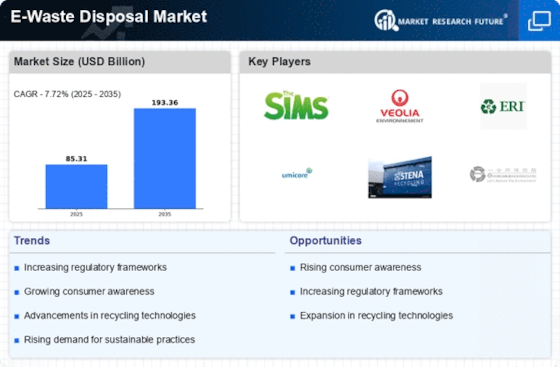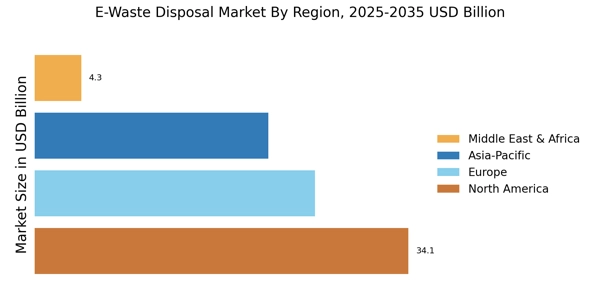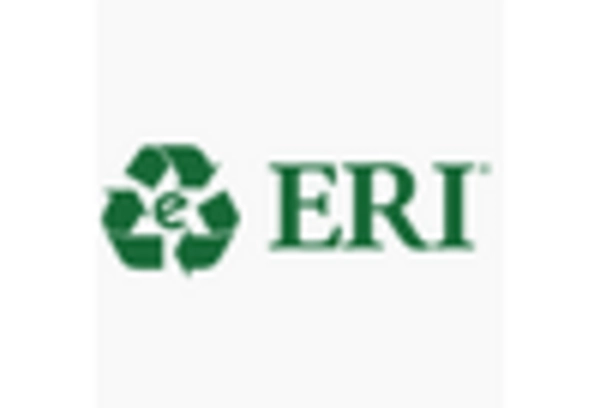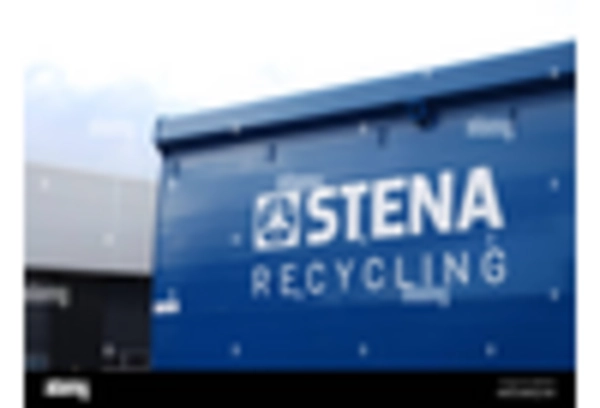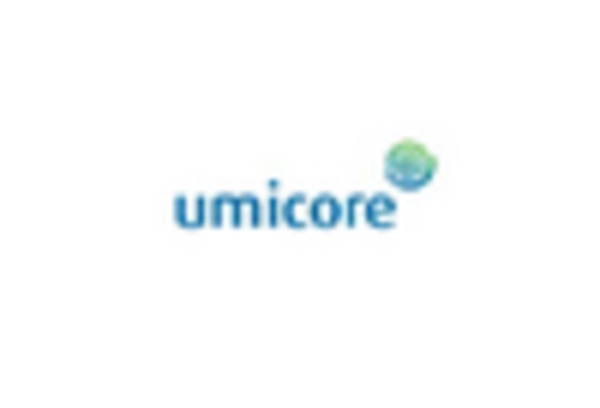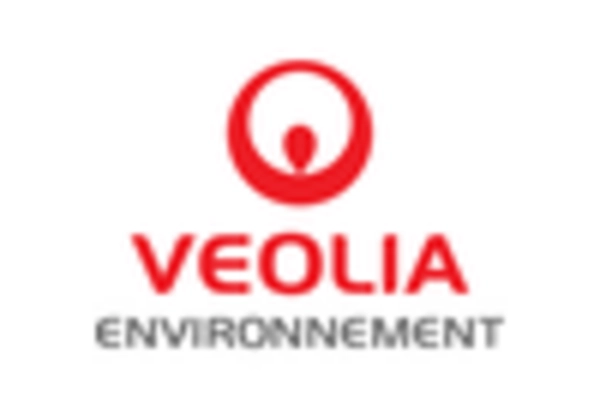Increasing Regulatory Pressure
The E-Waste Disposal Market is experiencing heightened regulatory pressure as governments worldwide implement stricter e-waste management policies. This trend is driven by the need to mitigate environmental hazards associated with improper disposal of electronic waste. For instance, regulations such as the Waste Electrical and Electronic Equipment Directive (WEEE) in Europe mandate that manufacturers take responsibility for the entire lifecycle of their products. As a result, companies are compelled to invest in sustainable disposal methods, thereby expanding the E-Waste Disposal Market. The market is projected to grow at a compound annual growth rate (CAGR) of approximately 23% from 2023 to 2030, indicating a robust response to these regulatory frameworks.
Growing Environmental Awareness
Growing environmental awareness among consumers and businesses is a crucial driver for the E-Waste Disposal Market. As public consciousness regarding the environmental impact of e-waste increases, there is a corresponding demand for responsible disposal practices. Educational campaigns and initiatives aimed at promoting recycling and proper disposal methods are gaining traction. This shift in consumer behavior is prompting companies to adopt more sustainable practices, including partnerships with certified e-waste recyclers. The market is likely to benefit from this trend, as consumers increasingly seek eco-friendly options for disposing of their electronic devices.
Rising Consumer Electronics Demand
The E-Waste Disposal Market is significantly influenced by the rising demand for consumer electronics. As more individuals acquire smartphones, laptops, and other electronic devices, the volume of e-waste generated continues to escalate. According to estimates, the global e-waste generation is projected to reach 74 million metric tons by 2030. This surge in electronic consumption necessitates effective disposal solutions, thereby propelling the growth of the E-Waste Disposal Market. Companies are increasingly focusing on establishing collection and recycling programs to address this challenge, which may lead to a more sustainable approach to e-waste management.
Corporate Sustainability Initiatives
Corporate sustainability initiatives are becoming increasingly prevalent within the E-Waste Disposal Market. Many organizations are recognizing the importance of integrating sustainable practices into their operations, particularly concerning e-waste management. Companies are implementing take-back programs and investing in recycling technologies to minimize their environmental footprint. This trend is not only driven by regulatory compliance but also by consumer expectations for corporate responsibility. As businesses strive to enhance their sustainability profiles, the E-Waste Disposal Market is expected to expand, with a projected growth rate of 20% annually over the next five years.
Technological Advancements in Recycling
Technological advancements are playing a pivotal role in shaping the E-Waste Disposal Market. Innovations in recycling technologies, such as automated sorting systems and advanced shredding techniques, enhance the efficiency of e-waste processing. These technologies not only improve recovery rates of valuable materials but also reduce the environmental impact of e-waste disposal. For example, the introduction of hydrometallurgical processes allows for the extraction of precious metals from electronic devices with minimal ecological footprint. As these technologies become more accessible, they are likely to drive market growth, with the industry expected to reach a valuation of USD 50 billion by 2030.

